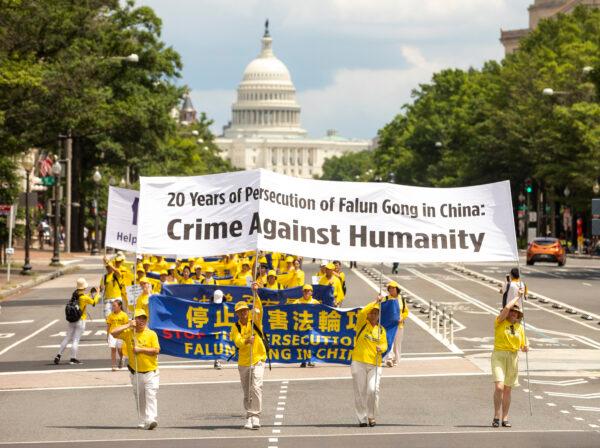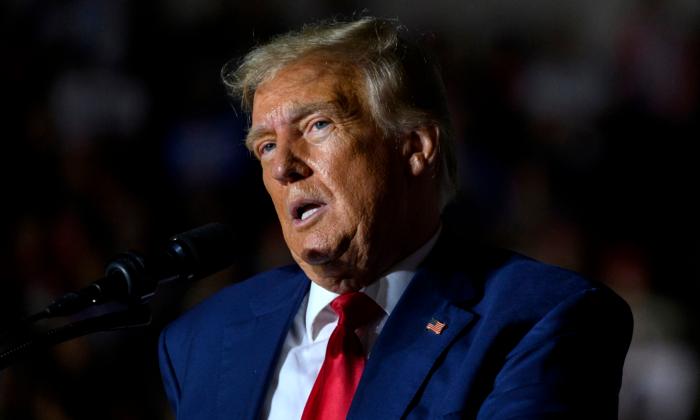The Trump administration on Dec. 10 sanctioned a Chinese official for his involvement in “gross human rights violations” against practitioners of Falun Gong—a spiritual practice persecuted by the Chinese Communist Party (CCP) since 1999.
U.S. Secretary of State Mike Pompeo said the United States would bar entry to Huang Yuanxiong, a police chief at the Wucun police station in Xiamen city, southern Fujian Province. The restriction also applies to Huang’s wife.
“Huang is associated with particularly severe violations of religious freedom of Falun Gong practitioners, namely his involvement in the detention and interrogation of Falun Gong practitioners for practicing their beliefs,” Pompeo said in a statement.
The sanction, made on International Human Rights Day, marks the first time the United States has punished a CCP official over his or her role in persecuting adherents of Falun Gong.
Huang was among 17 foreign officials sanctioned by the State Department on Dec. 10 under section 7031(c) of the Department of State, Foreign Operations, and Related Programs Appropriations Act 2020 for significant violations of human rights. Such designations are made when the state secretary has “credible information that officials of foreign governments have been involved in a gross violation of human rights or significant corruption,” according to the statement.
The practice, composed of meditative exercises and a set of teachings centered on the principles of truthfulness, compassion, and tolerance, grew in popularity in the 1990s, with 70 million to 100 million adherents in China by the end of the decade, according to official estimates at the time. Threatened by its popularity, the CCP launched a systematic elimination campaign against the practice, utilizing the entire state apparatus.

“The world cannot stand idly by as the PRC [People’s Republic of China] government perpetrates horrific and systematic abuses against people in China, including violating the internationally recognized right to freedom of thought, conscience, and religion or belief,” Pompeo said.
Levi Browde, executive director of the Falun Dafa Information Center, applauded the administration’s move, which he said “holds individuals accountable for the systematic detention, torture, and killing of people who practice Falun Gong in China.”
Ongoing Persecution
Records from Minghui.org, a clearinghouse for firsthand information about the persecution of Falun Gong in China, show that more than 5,300 Falun Gong practitioners were detained or harassed during the first half of 2020 alone.Authorities in the province of Fujian have heavily suppressed practitioners. For example, Ye Guohua, a local middle-school teacher, was jailed three times for more than five years over the period of 2002 to 2013, according to Minghui.org. In January 2018, while doing Falun Gong exercises with five fellow practitioners at a friend’s home, the police rushed in and arrested all of them, torturing and interrogating them until 1 a.m. that night. Officers later raided Ye’s home and detained him. Then, in September that year, police suddenly told Ye’s family to bail him out, claiming he had an acute illness and was under emergency rescue.
The Trump administration has taken an increasingly harder line in response to the CCP’s rampant rights abuses. It has previously sanctioned Chinese officials and blacklisted Chinese companies for their role in suppressing Uyghur Muslims in the region of Xinjiang. A growing list of Chinese and Hong Kong officials have also been sanctioned for overseeing the erosion of freedoms in Hong Kong.
Pompeo said these designations “underscore ... the promotion of accountability for gross violators of human rights” and express “the time-honored American aspiration for all people to be free.”





